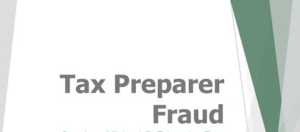Military Tax Tips
VAMBOA’s members are servicemembers, veterans and spouses, and our focus is on their businesses. But as we are in the midst of the tax season, we thought it might be helpful to include some personal tax tips for military personnel. Often times, business owners place their businesses first and their personal finances last.
The first step to filing taxes is to determine your gross income. Members of the Armed Forces receive many different types of pay and allowances, some that are taxable and some that are excluded. Excludable items are not subject to taxes, however, they still may still have to be shown on your tax return.
Unless the pay is for service in a combat zone where special rules apply, you must include these items when adding up your annual gross income:
- Basic Pay, which includes: active duty, back wages, drills, attendance at a designated service school, training duty and reserve training.
- Special Pay, which includes: foreign duty, hostile fire or imminent danger, nuclear-qualified officers, aviation career incentives, diving duty and special duty assignment pay
- Enlistment/re-enlistment bonuses, accrued leave, allowances paid to high-ranking officers and some student loan repayments are included in taxable income.
The following areas are excludable from gross income:
Basic Allowance for Housing (BAH), Basic Allowance for Subsistence (BAS), Overseas Housing Allowance (OHA) and cost-of-living allowances abroad, travel allowances, moving allowances, family allowances, health coverage, benefits, education allowances, uniform allowances, death allowances, and as previously mentioned, compensation for active service while in a combat zone or a qualified hazardous duty area.
Similar to civilians, you may not have to pay tax on all of the profit realized from the sale of your main home. A deduction of up to $250,000 of gains (or $500,000 if married, filing jointly) is generally available upon the sale of a primary residence in which you have occupies for more than two years. You may also be able to exclude gain from the sale of a home that was used as a rental or business property as long as it meets certain ownership test criteria outlined by the IRS.
When regulations prohibit you from wearing uniforms off duty, you may deduct the un-reimbursed cost and expense of upkeep of the uniforms, including:
Military dress uniforms, utility uniforms, insignia of rank, epaulets, and swords, and Reservists’ uniforms.
VAMBOA hopes that this information has been of value to you.
Veteran and Military Business Owners Association, VAMBOA,












